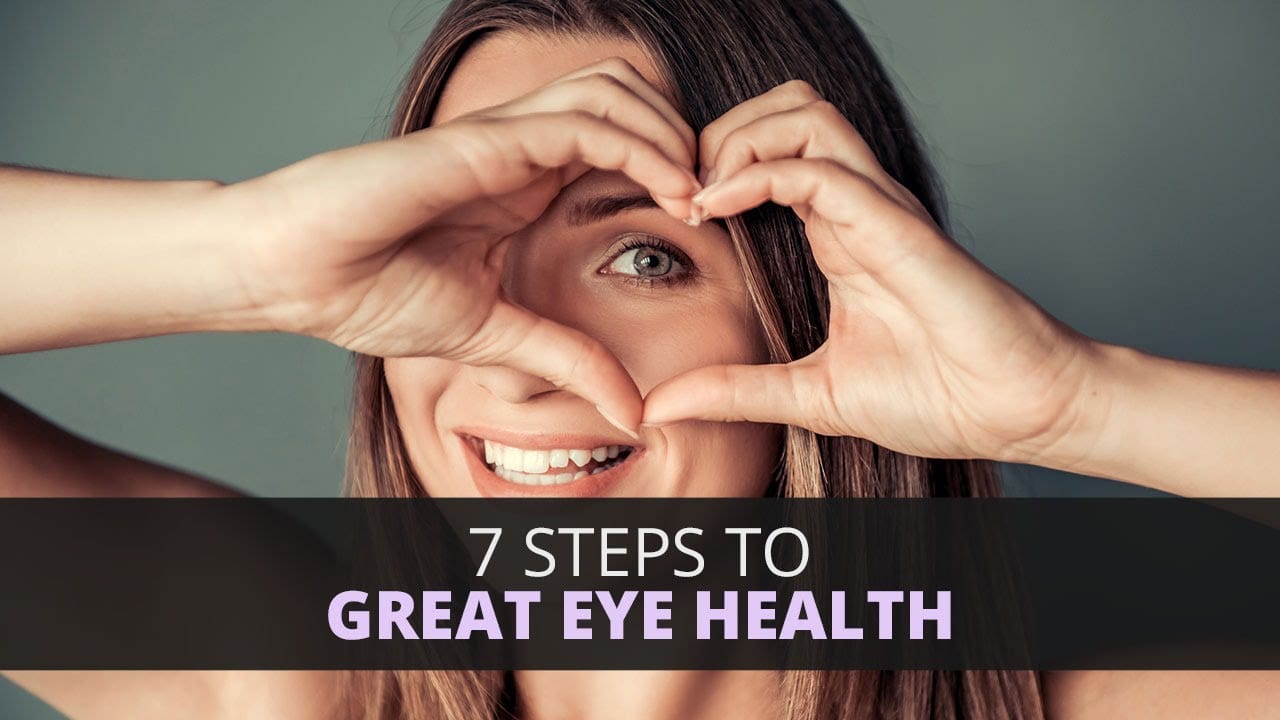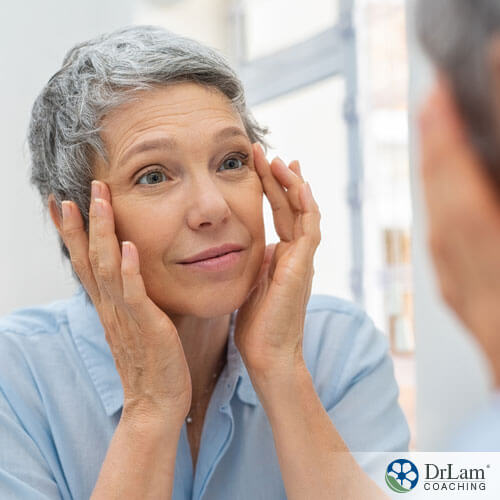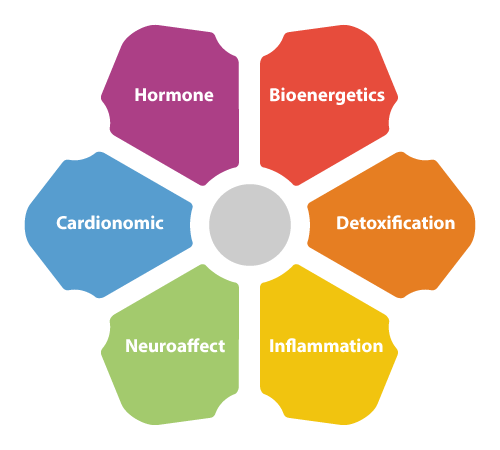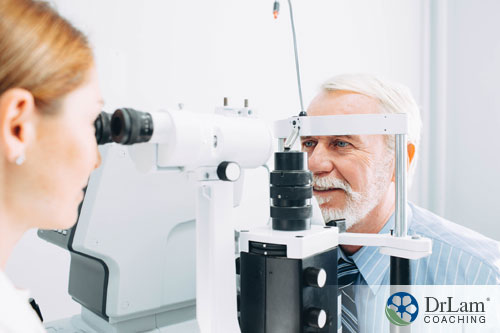
Of all the five senses, your vision is by far the most important one. Unlike many animals which use mainly their sense of smell or hearing to get by, humans rely on sight more than on any other sense. As over 80% of the information you take in from the world around you comes through your eyes, the importance of good eye health cannot be overestimated. However, like so many other things in life, we often take our eyes for granted.
 They say that what you eat says a lot about you, and sooner or later it will show on your face, or in your body, or in your eyes. You may not be what you eat, but it certainly affects your health. Many regard the eyes as the “window to the soul”, but even more so, they are a window to the health of the rest of your body.
They say that what you eat says a lot about you, and sooner or later it will show on your face, or in your body, or in your eyes. You may not be what you eat, but it certainly affects your health. Many regard the eyes as the “window to the soul”, but even more so, they are a window to the health of the rest of your body.
Changes in your eyes, such as puffy eyes, ring round the cornea, cloudy cornea, droopy eyes, or white turning yellow, are often tell-tale signs of not only a vision problem, but also of other conditions, including diabetes, high cholesterol levels, liver disorder, chronic stress, and many others.
Things your eyes say about your health:
The eye is a complex organ which helps you see and experience the world around you, differentiate between colors, and see near as well as distant objects. After the brain, the eye is the most complex organ or your body and is the home to 107 million light-sensitive cells. Eyes convert light into electrical signals which the brain then deciphers and turns into images. Therefore, maintaining good eye health is essential for successful absorbing and processing all the information you are surrounded by.
There are dozens of serious eye health disorders which can affect various parts of the eye, many of which can only be corrected with surgery. Fortunately, most of the common eye health problems can be prevented or even corrected with non-invasive methods.
Some of the most common eye health problems include:
Although many of these eye health issues are part of the natural aging process, there is much you can do to postpone or even prevent them.
To improve your eye health, protect your vision, and reverse some of the damage that may already have been done, you need to address the main thing that good eye health depends on – how you take care of your overall health.
Poor diet deprives your body of proper nutrients. While you may not be able to do much about the state of your environment, your diet is definitely something you have control over.
The easiest way to protect your vision and prevent or at least slow down the onset of age-related eye disorders is with a healthy diet because it significantly reduces the risk of eye health problems.
There are a number of eye health-supporting foods that are easy to include in your diet and that will support your eyesight and keep macular degeneration at bay:

 Sun is the source of life, but it is also the source of good eye health. We know from repeated studies that sunlight strengthens the eyes by triggering the release of dopamine, a feel-good hormone that increases when the retinas are exposed to natural light. Studies show that those who receive the natural dopamine boost by regularly exposing their eyes to sunlight are almost 50% less likely to develop macular degeneration.
Sun is the source of life, but it is also the source of good eye health. We know from repeated studies that sunlight strengthens the eyes by triggering the release of dopamine, a feel-good hormone that increases when the retinas are exposed to natural light. Studies show that those who receive the natural dopamine boost by regularly exposing their eyes to sunlight are almost 50% less likely to develop macular degeneration.
Unfortunately, most of us spend almost 90% of our time indoors, often with only artificial light, air conditioning instead of fresh air, and glued to our computers or TV sets. However, making a point of spending time outside doing something you enjoy is a great way to improve your eye health by increasing dopamine levels naturally.
According to the American Optometry Association (AOA), “Computer Vision Syndrome” is caused by long-term exposure to the harsh blue lighting emitted from smartphones, tablets, laptops, and computers. If you can't avoid using these gadgets, at least take frequent breaks so that you relax your eye muscles or consider adding filters to reduce blue light.
Cigarette smoke contains over 4000 different chemicals, most of which are toxic. As a result, smoking damages tissue in the eye and is believed to be responsible for 25% of age-related macular degeneration. Studies show that smokers are four times more likely to go blind in old age than non-smokers.
The UV radiation can cause significant damage to your eyes because many parts of your eyes are vulnerable to UV rays. It's well-known that these rays contribute to cataract development, macular degeneration, and certain eye growths.
Going for an annual eye examination helps you detect possible vision problems or eye diseases before they become irreversible. A yearly check-up is a good idea for most people, and going more often may be needed if you have diabetes or other conditions that affect your eye health.
There are some simple techniques that effectively relieve eye strain and that can easily be practiced anywhere. You can do these in public transport, while standing in a queue, and at the office. The best-known ones are the Bates eye exercise system, palming, relaxation, and visualization.
When you are frightened or stressed, your body instinctively goes into "fight or flight" mode. As a result, it starts producing hormones like adrenaline and cortisol which speed up your heart rate, increase your blood pressure, and tighten your muscles as they get ready to hit or receive a blow.
This is a normal reaction to a stressful situation, be it a physical danger or when facing an angry client. However, if this happens often or lasts for a long time, your adrenal glands, that regulate the production of the so-called stress hormone cortisol, will eventually wear out. This is the long and short of adrenal burnout or adrenal fatigue.
 Our response to stress is very complex as the body produces six types of stress responses, and different primary systems and organs are involved in this process. The NeuroEndoMetabolic (NEM) Stress Response model is an alternative way of describing the symptoms of, AFS and it offers a path to lasting relief.
Our response to stress is very complex as the body produces six types of stress responses, and different primary systems and organs are involved in this process. The NeuroEndoMetabolic (NEM) Stress Response model is an alternative way of describing the symptoms of, AFS and it offers a path to lasting relief.
The NEM model revolves around the idea that proper adrenal function is essential for optimal health. Unfortunately, when the adrenals become overburdened and cortisol levels rise and stay high for a long time, as is common in today's world of high stress, you will sooner or later experience many of the AFS symptoms. You may become prone to illness because of a weakened immune system, you may have difficulty falling asleep at night while feeling sluggish during the day, you may engage in comfort eating (also known as “stress eating”), or you may eventually develop heart disease.
We live in an increasingly stressful world where long-working hours and competitive workplaces create tension and force us to stay on our toes throughout the day. Is it surprising, then, that so many of the common eye health problems are stress-related?
These are some of the most common stress-related eye conditions and how they affect you.
As this list shows, many of these vision problems can be the result of chronic stress. This is because cortisol is believed to be the body's best anti-inflammatory, but it's low in people affected by the later stages of AFS. This can cause various types of inflammation of the eye including iritis (inflammation of the iris), uveitis (swelling of the eye uvea), and worsening of dry eyes.
 Your eyes are arguably your most important sense and how humans get most of their information about the world. Health problems with your eyes can also be indicative of problems elsewhere in the body. Protecting them is vital. However, there are steps you can take to make this happen, even if you have AFS. A well-balanced diet, herbal supplements, sunlight, UV protection, eye exercises, and seeing an eye doctor regularly can all help protect your eye health for many years into the future. Adopting a lifestyle that promotes calmness and periods of relaxation is also an excellent way to prevent stress from adding to your eye health challenges.
Your eyes are arguably your most important sense and how humans get most of their information about the world. Health problems with your eyes can also be indicative of problems elsewhere in the body. Protecting them is vital. However, there are steps you can take to make this happen, even if you have AFS. A well-balanced diet, herbal supplements, sunlight, UV protection, eye exercises, and seeing an eye doctor regularly can all help protect your eye health for many years into the future. Adopting a lifestyle that promotes calmness and periods of relaxation is also an excellent way to prevent stress from adding to your eye health challenges.
© Copyright 2020 Michael Lam, M.D. All Rights Reserved.
Recent studies show that certain foods can not only preserve your eyesight but reverse some disorders. Although the deterioration of eye health is usually linked to aging, certain aspects of your diet and habits can reduce or increase your chances of some eye disorders.
